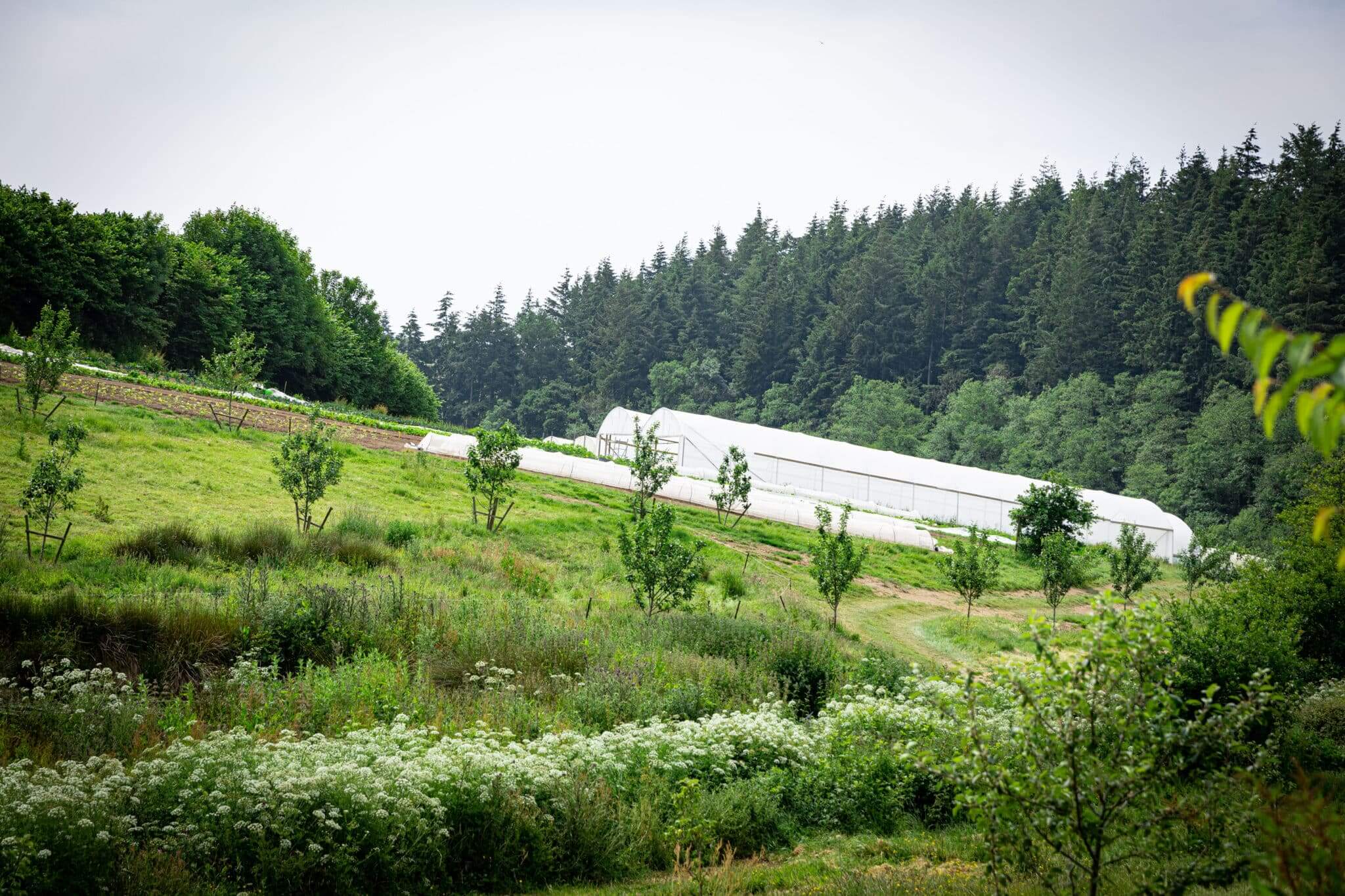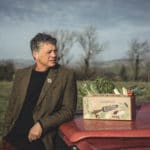On his organic farm in the foothills of the French Pyrenees, Willem grows, presses, and bottles wonderful extra virgin olive oil. My wife Geetie and I visited in October, to see if his ‘shake and catch’ harvesting machinery could be adapted to harvest walnuts and hazelnuts in Devon’s equally steep (but much wetter) hills.
Willem gets a third of our annual rainfall, and he has wild boar instead of squirrels – but the challenges of growing on marginal land in an era of intensification are similar.
Globally, production of fruit trees, olives, and nuts is shifting from mixed crops on marginal land, to uber-intensive monocultures (fields of a single crop) on the very best land. Ever larger, denser plantings produce ever shorter-lived trees; they suffer more disease, because of restricted air movement and the ecological instability of monocultures. High inputs of fertilisers and pesticides are needed to produce high yields, in a spiral of intensity and fragility.
Willem and I are swimming against the tide by pursuing lower-input farming on marginal land. Our boulders and slopes make mechanisation difficult, but allow a regulated version of nature to exist in and around our crops. On Willem’s farm, I am drawn to the way regimented rows of olive trees intersect with corridors of wilderness in the steep ravines. It feels right – but is it? Are we practicing a sympathetic, minimal-intervention farming that co-exists with nature? Or are we the ‘agricultural sprawl’ derided by George Monbiot in his book, Regenesis?
There is a rational argument (proposed by Monbiot) that concentrating farming on fewer, more intensively farmed acres releases the rest of the land for rewilding and carbon sequestration. Some would go further, and produce our food in indoor vertical farms – or even in vats, using precision fermentation.
Such opposing and passionately held views make it a confusing time to be a farmer. I suspect there will be few universal solutions; the definition of ‘good farming’ will be as varied as our topographies, soils, climates, and the tastes of the customers we serve.
For the olive oil obsessives among you, Willem’s deliciously peppery new season oil is now on sale here. It is expensive (the cost of marginal farming) – but my dish of the season is cavolo nero risotto, finished with a drenching of this green oil. As for my hazel and walnuts, it will be a few more years before they’re ready.
















0 Comments